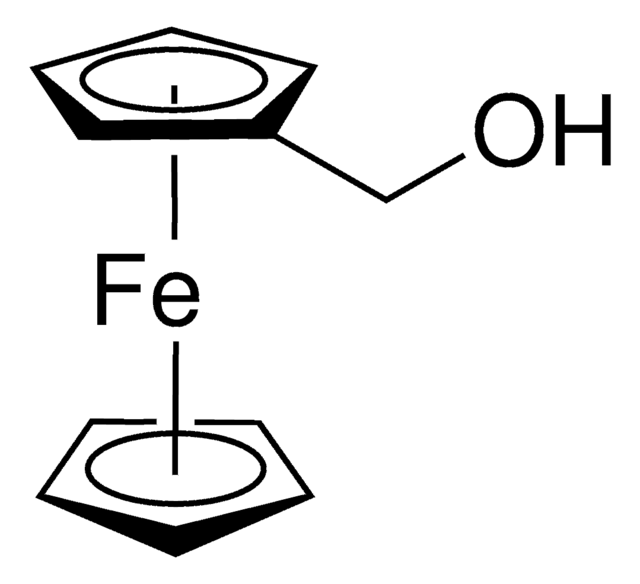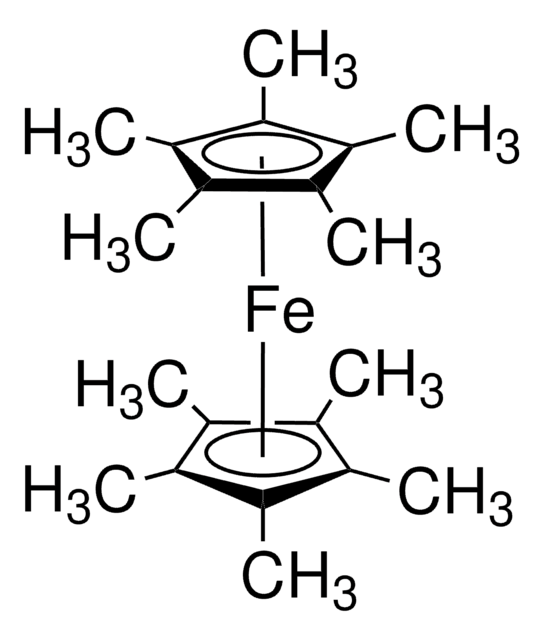Wichtige Dokumente
932183
Hexaammineruthenium(III) chloride ChemBeads
About This Item
Empfohlene Produkte
Form
solid
Qualitätsniveau
Lagertemp.
2-8°C
SMILES String
[Ru+3].[Cl-].[Cl-].[Cl-].N.N.N.N.N.N
InChI
1S/3ClH.6H3N.Ru/h3*1H;6*1H3;/q;;;;;;;;;+3/p-3
InChIKey
GBDZMMXUOBAJMN-UHFFFAOYSA-K
Allgemeine Beschreibung
Anwendung
ChemBeads are chemical coated glass beads. ChemBeads offer improved flowability and chemical uniformity perfect for automated solid dispensing and high-throughput experimentation. The method of creating ChemBeads uses no other chemicals or surfactants allowing the user to accurately dispense sub-milligram amounts of chemical.
Learn more about ChemBeads products
Product is also available as neat precatalyst 262005
Sonstige Hinweise
Versatile Methods to Dispense Sub-Milligram Quantities of Solids using Chemical Coated Beads for High-Throughput Experimentation
ChemBead Enabled High-Throughput Cross-Electrophile Coupling Reveals a New Complementary Ligand
Ähnliches Produkt
Signalwort
Danger
H-Sätze
Gefahreneinstufungen
Carc. 1B Inhalation
Lagerklassenschlüssel
6.1C - Combustible acute toxic Cat.3 / toxic compounds or compounds which causing chronic effects
WGK
WGK 3
Hier finden Sie alle aktuellen Versionen:
Analysenzertifikate (COA)
It looks like we've run into a problem, but you can still download Certificates of Analysis from our Dokumente section.
Wenn Sie Hilfe benötigen, wenden Sie sich bitte an Kundensupport
Besitzen Sie dieses Produkt bereits?
In der Dokumentenbibliothek finden Sie die Dokumentation zu den Produkten, die Sie kürzlich erworben haben.
Unser Team von Wissenschaftlern verfügt über Erfahrung in allen Forschungsbereichen einschließlich Life Science, Materialwissenschaften, chemischer Synthese, Chromatographie, Analytik und vielen mehr..
Setzen Sie sich mit dem technischen Dienst in Verbindung.









